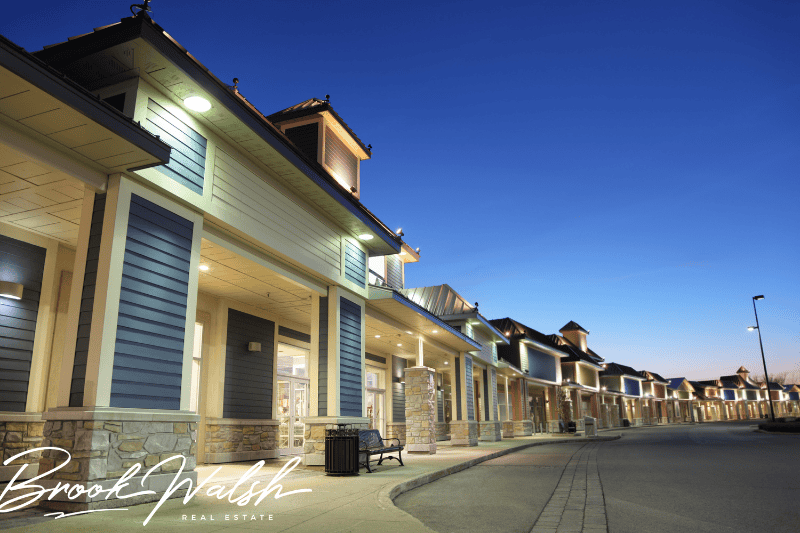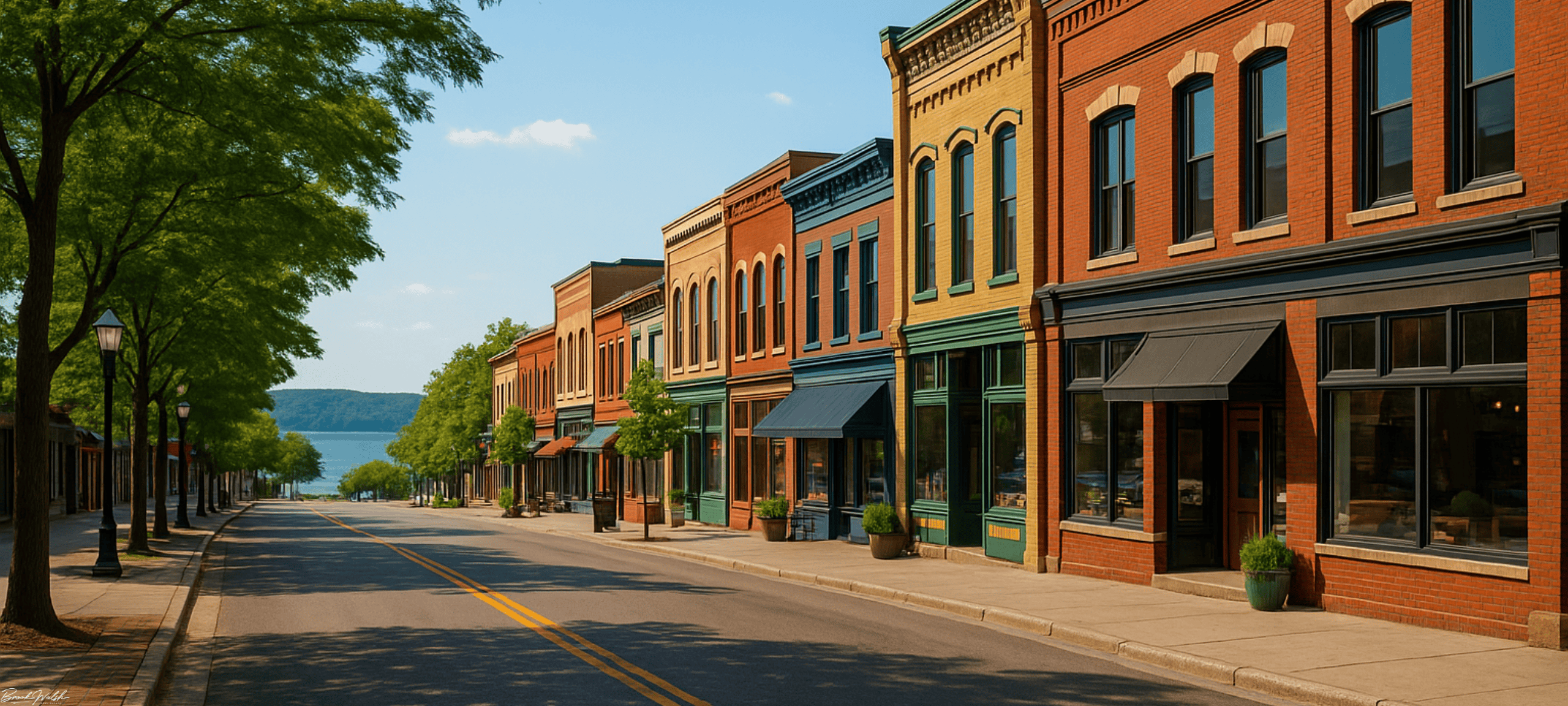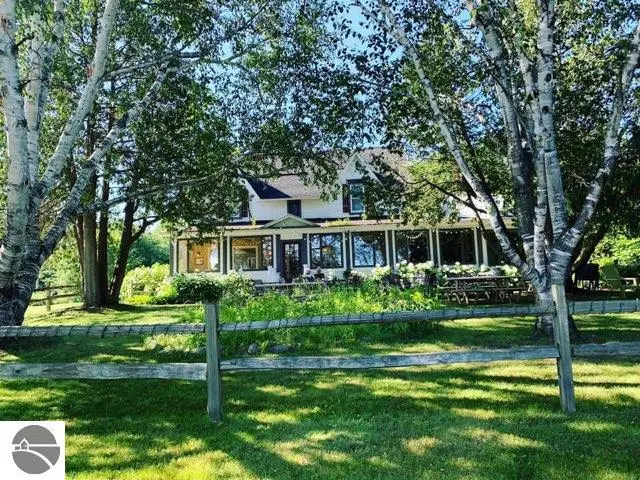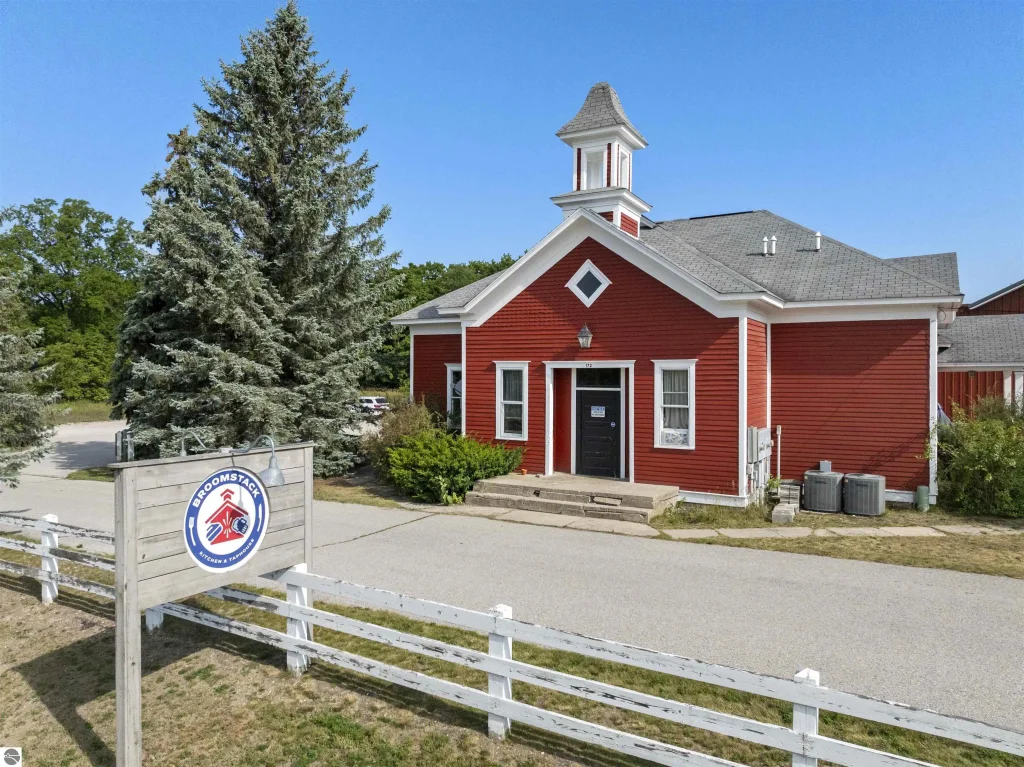Real Estate Statistics
| Average Price | $875K |
|---|---|
| Lowest Price | $150K |
| Highest Price | $1.6M |
| Total Listings | 2 |
| Avg. Days On Market | 582 |
| Avg. Price/SQFT | $129 |
Property Types (active listings)
Browse Maple City, MI Commercial Real Estate for Sale and Lease
- All Listings
- $100,000 - $200,000
- Over $1,000,000
Maple City, MI Commercial Real Estate for Sale and Lease: 7 Profitable Options
Introduction to Maple City’s Commercial Real Estate Market

Maple City, MI Commercial Real Estate for Sale and Lease has emerged as a hidden gem for savvy investors seeking strong returns in a picturesque Northern Michigan setting.
That said, until recently, many overlooked this small town nestled on the shores of Lake Michigan, but today it’s catching national attention for its balanced mix of retail, office, industrial, and hospitality properties.
At first glance, Maple City feels like your quintessential small Midwest town—tree-lined streets, friendly storefronts, and a thriving art community. Yet beneath that quaint surface lies a northern Michigan commercial real estate market powered by a robust tourism sector, light manufacturing firms, and sustainable agribusiness. For instance, when you drive through the downtown core, you’ll spot renovated brick buildings housing cozy cafes next to modern coworking spaces—evidence of smart redevelopment that respects the town’s heritage.
Transitioning from sleepy to bustling didn’t happen overnight. Over the past decade, infrastructure upgrades—like improved broadband, road expansions, and expanded municipal utilities—have paved the way for new developments. Consequently, vacancy rates have dipped below 5%, rental rates are ticking upward, and investors from Chicago to Detroit are snapping up properties before prices climb further.
Ultimately, whether you’re a first-time commercial buyer or a seasoned landlord, this guide will unpack market trends, highlight prime locations, detail financing routes, and chart out the exact steps you need to take. By the end, you’ll understand why Maple City, MI Commercial Real Estate for Sale and Lease represents not just an investment—but a strategic play in a community on the rise.
Market Trends Driving Demand

Understanding current market drivers is essential before you commit capital. Over the past three years, Maple City’s commercial sector has seen:
-
Steady Rental Rate Growth
Rental rates for retail spaces have climbed roughly 4–6% annually, while office rents are up about 3% per year. This is partly due to renewed demand for small-town office settings, as remote-friendly firms seek affordable satellite offices. -
Low Vacancy Rates
Overall vacancy hovers between 4–5%, well below the national mid-sized-town average of 7–8%. Lower vacancies translate to more predictable cash flow for landlords. -
Diverse Tenant Mix
From local craft breweries to regional consulting firms, tenant profiles are balanced, reducing sector-specific risk. Importantly, hospitality venues—like boutique inns and lakeside restaurants—benefit from Michigan’s four-season tourism. -
Tourism’s Ripple Effect
With over 100,000 annual visitors exploring nearby Sleeping Bear Dunes National Lakeshore, ancillary businesses (gift shops, cafes, outdoor outfitters) continue to expand. For example, year-round tourism has spurred a 12% increase in short-term rental bookings, fueling investment in mixed-use and hospitality assets.
That said, keep an eye on supply pipeline data. A few stalled projects due to interest-rate volatility signal cautious optimism: developers are prioritizing quality over quantity, ensuring new properties meet current sustainability and tech standards.
Prime Locations for Commercial Investment
Where you buy is just as important as what you buy. Maple City offers several hotspots:
| Location | Property Types | Key Advantages |
|---|---|---|
| Downtown Maple City Core | Retail, Office, Mixed-Use | High foot traffic, historic charm, walkability |
| Lakeside Business Corridor | Hospitality, Retail | Lake views, tourist draw, premium rent potential |
| Industrial Park & Logistics | Warehouses, Light Ind. | Proximity to highways, low land costs, room to expand |
| Emerging Mixed-Use | Retail, Residential | Incentivized zoning, modern amenities, community appeal |
Downtown Maple City Core
Historic brick storefronts now host artisanal boutiques and professional services. Expect stable demand, long-term leases, and participation in façade improvement grants.
Lakeside Business Corridor
Developments here capitalize on lakefront views. Ideal for restaurants, short-term rental condos, and retail. Premium rents range 10–15% above town averages.
Industrial Park & Logistics
Designed for small manufacturers and distribution centers, this district offers large lots at $15–$20 per sq. ft., making it a cost-effective choice for high-ceiling facilities.
Emerging Mixed-Use
New projects blend ground-floor retail with upper-level apartments. With zoning incentives, investors can apply for density bonuses, reducing per-unit costs.
Key Features of Maple City Commercial Real Estate

When evaluating properties, consider these crucial factors:
Property Types and Sizes
-
Retail Units: 1,000–5,000 sq. ft., ideal for boutiques, cafes, and galleries.
-
Office Suites: 500–3,000 sq. ft., often in shared-amenity buildings.
-
Industrial Spaces: 5,000–50,000 sq. ft. with 16–24 ft. clear heights.
-
Hospitality: 10–50 keys, ranging from boutique inns to lakeside lodges.
Zoning Regulations and Approvals
Maple City’s zoning code is investor-friendly:
-
Downtown District (DT): Mixed-use encouraged, ground-floor commercial mandatory.
-
Commercial Corridor (CC): Retail and hospitality prioritized; residential permitted above.
-
Industrial Park (IP): Light manufacturing and warehousing; strict noise controls.
Before purchase, verify permitted uses, parking requirements, and signage rules with the city’s Planning Department or via Michigan Economic Development Corporation for broader state guidelines.
Infrastructure, Utilities, and Amenities
-
Broadband: Up to 1 Gbps fiber available in core and industrial zones.
-
Water & Sewer: Recent upgrades support up to 200,000 gallons per day.
-
Parking: Surface lots and municipal garages ensure 1.5–3 spaces per 1,000 sq. ft., depending on district.
Amenities like proximity to schools, medical facilities, and recreational trails add tenant appeal, boosting property valuations over time.
Financing Options and Incentive Programs

Securing the right financing can boost your returns:
Traditional Bank Loans
-
Term: 5–20 years
-
Rates: Starting around 6.5%
-
LTV: 65–75%
SBA-Backed Financing
-
504 Program: Long-term, fixed rates, up to 40% of project cost.
-
7(a) Loan: More flexible, suitable for acquisition and renovation.
State and Local Grants & Tax Credits
-
Brownfield Redevelopment Grant: Up to $300,000 for environmental cleanup.
-
Historic Tax Credits: 20% federal credit for certified historic restorations.
Incentive Zones and Opportunity Funds
Investors in designated Opportunity Zones may defer capital gains taxes. Likewise, local TIF districts can rebate property taxes on improvements for 10–15 years.
Pro Tip: Consult with a commercial mortgage broker to compare multiple lenders and secure pre-approval terms before submitting offers.
Steps to Buying Commercial Real Estate in Maple City

A clear roadmap ensures you avoid costly mistakes:
Partnering with a Local Broker
A seasoned broker—preferably one with a track record in Maple City—will surface off-market deals and negotiate on your behalf.
Conducting Thorough Due Diligence
-
Physical Inspection: Structural, environmental, and code compliance.
-
Financial Review: Rent rolls, expense audits, historical performance.
-
Market Study: Comparable rents, absorption rates, and tenant demand.
Negotiating Terms and Closing
-
Letters of Intent (LOI): Outline price, due diligence windows, and exclusivity.
-
Purchase Agreement: Lock in contingencies for financing and inspections.
-
Closing: Work with title and escrow agents to finalize deed transfers and loan documents.
By methodically following these steps—and tapping expert advisors—you’ll streamline your purchase and mitigate risk.
Frequently Asked Questions

Q. What is the average square-foot price?
A. As of Q1 2025, retail spaces average $18–$22 per sq. ft., while office suites range $14–$18. Industrial land trades at $15–$20 per sq. ft. Pricing may vary by location and property condition.
Q. Which financing option is best for small investors?
A. SBA 7(a) loans often fit small investors due to lower down payments (as low as 10%) and flexible uses—including acquisition and renovation.
Q. Are there tax incentives for renovation?
A. Yes—historic tax credits (20% federal) and local brownfield grants can slash redevelopment costs for qualifying properties.
Q. How long does closing typically take?
A. Closings average 45–60 days from LOI acceptance, depending on financing complexity and due diligence.
Q. What zoning laws affect retail vs. office?
A. Downtown District permits both retail and office, but ground-floor retail is mandatory. Office-only buildings are limited to upper levels or separate office parks.
Q. Where can I view active listings?
A. Browse active listings via BrookWalsh.com or consult local MLS feeds through your broker.
Conclusion: Seizing Opportunities in Maple City’s Commercial Market
Maple City, MI Commercial Real Estate for Sale and Lease offers a rare blend of small-town charm and robust investment fundamentals. From stable rental growth to diverse property types, low vacancies, and generous incentive programs, the town has set the stage for durable returns. By following this guide—examining market trends, targeting prime locations, securing optimal financing, and partnering with local experts—you’re well on your way to capitalizing on Maple City’s commercial renaissance.
Continue your Northern Michigan commercial real estate search in the communities below or contact Brook Walsh to help you with your search.
Browse Other Communities
- Alanson, MI Commercial Real Estate
- Alpena, MI Commercial Real Estate
- Atlanta, MI Commercial Real Estate
- Bay Harbor, MI Commercial Real Estate
- Beaver Island, MI Commercial Real Estate
- Bellaire, MI Commercial Real Estate
- Beulah, MI Commercial Real Estate
- Brutus, MI Commercial Real Estate
- Boyne City, MI Commercial Real Estate
- Boyne Falls, MI Commercial Real Estate
- Cadillac, MI Commercial Real Estate
- Carp Lake, MI Commercial Real Estate
- Central Lake, MI Commercial Real Estate
- Charlevoix, MI Commercial Real Estate
- Cheboygan, MI Commercial Real Estate
- Cross Village, MI Commercial Real Estate
- East Jordan, MI Commercial Real Estate
- Elk Rapids, MI Commercial Real Estate
- Ellsworth, MI Commercial Real Estate
- Empire, MI Commercial Real Estate
- Fife Lake, MI Commercial Real Estate
- Frankfort, MI Commercial Real Estate
- Gaylord, MI Commercial Real Estate
- Glen Arbor, MI Commercial Real Estate
- Grayling, MI Commercial Real Estate
- Harbor Springs, MI Commercial Real Estate
- Hillman, MI Commercial Real Estate
- Honor, MI Commercial Real Estate
- Houghton Lake, MI Commercial Real Estate
- Indian River, MI Commercial Real Estate
- Interlochen, MI Commercial Real Estate
- Johannesburg, MI Commercial Real Estate
- Kalkaska, MI Commercial Real Estate
- Kewadin, MI Commercial Real Estate
- Kingsley, MI Commercial Real Estate
- Lake Ann, MI Commercial Real Estate
- Lake City, MI Commercial Real Estate
- Leland, MI Commercial Real
- Levering, MI Commercial Real Estate
- Lewiston, MI Commercial Real Estate
- Mackinac Island, MI Commercial Real Estate
- Mackinaw City, MI Commercial Real Estate
- Manton, MI Commercial Real Estate
- Manistee, MI Commercial Real Estate
- Maple City, MI Commercial Real Estate
- Northport, MI Commercial Real Estate
- Onaway, MI Commercial Real Estate
- Onekama, MI Commercial Real Estate
- Pellston, MI Commercial Real Estate
- Petoskey, MI Commercial Real Estate
- Rogers City, MI Commercial Real Estate
- Roscommon, MI Commercial Real Estate
- Suttons Bay, MI Commercial Real Estate
- Tawas City, MI Commercial Real Estate
- Thompsonville, MI Commercial Real Estate
- Topinabee, MI Commercial Real Estate
- Traverse City, MI Commercial Real Estate
- Vanderbilt, MI Commercial Real Estate
- Walloon Lake, MI Commercial Real Estate
- Williamsburg, MI Commercial Real Estate
- Wolverine, MI Commercial Real Estate

Start searching for your dream home now.
When it comes to convenience, our site is unparalleled. Whether you're in the comfort of your home, or on the go.
Our site works flawlessly on multiple devices so you can find the information you need.




